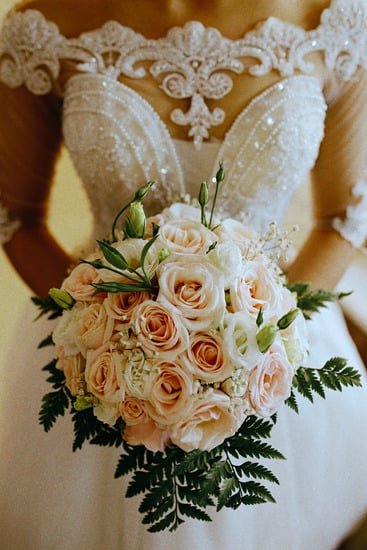Is a wedding worth it? This question has been the subject of much debate, with couples and families grappling with the emotional and financial investment involved in planning and hosting a wedding.
The expectations versus reality of this significant event in one’s life often leads to introspection about its true worth. In this article, we will delve into the various aspects of weddings, including cost, symbolism, alternatives, stress, balancing expectations, aftermath, and provide a final verdict on whether a wedding is truly worth it.
The cost of a wedding is one of the most significant factors that come into play when considering its worth. From the venue to the catering to the dress and everything in between, weddings can be an expensive affair. The financial burden it may place on couples and their families can be considerable, prompting many to question if this investment is truly worth it.
Beyond the monetary aspect, there is also the symbolic importance of a wedding ceremony. For many couples, getting married is not just a legal formality but a meaningful ritual that signifies their commitment to each other. It brings families together and holds cultural and personal significance. These aspects also need to be weighed in when determining whether a wedding is worth it or not.
The Cost of a Wedding
Main expenses of a wedding can vary depending on personal preferences and cultural traditions. Some of the major costs typically include the venue rental, catering, the wedding dress and attire for the bridal party, photography and videography services, floral arrangements, music and entertainment, invitations and stationery, transportation, and accommodations for guests. Couples may also choose to allocate funds for additional expenses such as a honeymoon or pre-wedding events.
The potential financial burden that a wedding may place on couples and their families is something that should not be underestimated. Many couples go into debt or deplete their savings in order to finance their dream wedding. This can lead to stress and strain on relationships with family members who may feel pressured to contribute financially.
Budgeting and considering cost-effective alternatives can help alleviate this burden while still allowing couples to have a memorable celebration of their love. An open conversation about finances with both families can also ease potential tensions and ensure everyone is on the same page about expectations.
The Symbolism of a Wedding
A wedding is a significant and symbolic event that celebrates the union of two individuals in love, marking the beginning of their journey as a married couple. The ceremony itself holds deep cultural and personal importance, as it is often seen as an essential rite of passage in many societies. Additionally, weddings play a crucial role in bringing families together, not only to witness the exchange of vows but also to join in the celebration of love and commitment.
Cultural Significance
In many cultures around the world, weddings are steeped in tradition and symbolism, representing the merging of two families, the continuation of lineage, and the creation of new bonds. From elaborate customs and rituals to heartfelt traditions, each element of a wedding ceremony holds cultural significance that is passed down through generations. For many couples, honoring these traditions is a way of paying homage to their heritage and strengthening their ties with their cultural roots.
Personal Meaning
Beyond its cultural significance, weddings hold deep personal meaning for couples who choose to tie the knot. It is a declaration and celebration of their love for one another-a public affirmation that they are committed to sharing their lives together.
The act of exchanging vows and rings symbolizes their dedication to one another, promising to stand by each other through thick and thin. This momentous occasion is often cherished for years to come as a testament to the bond they share.
Role in Family Unity
A wedding not only unites two individuals but also serves as a means to bring families together. It provides an opportunity for both sets of families to come together in support of the couple’s union.
By witnessing the exchange of vows and participating in celebratory events, family members can form new connections with one another and strengthen existing relationships. This communal gathering reinforces the notion that marriage is not just about two people coming together but also about two families joining forces as well.
Ultimately, the symbolism of a wedding goes far beyond just an elaborate party; it represents culture, tradition, commitment, love, unity, and family-a combination that holds great significance for many couples considering whether or not a wedding is worth it.
Alternatives to Traditional Weddings
When it comes to weddings, the traditional route isn’t the only option. For couples looking to tie the knot in a more unique and cost-effective way, there are several alternatives to consider that can still provide a deeply meaningful experience. Below are some non-traditional wedding options to explore:
1. Elopement: Elopement has shed its reputation as a secretive and impulsive act, and has become a popular choice for couples seeking an intimate and stress-free wedding experience. Whether it’s just the two of you or a small group of loved ones, eloping allows for a more personal and romantic ceremony without the pressure of a large event. Plus, it often comes with significant cost savings compared to traditional weddings.
2. Destination Weddings: Opting for a destination wedding not only offers the chance to exchange vows in a stunning location, but it also doubles as a memorable vacation for both you and your guests. Many resorts and hotels offer all-inclusive wedding packages that can be more affordable than hosting a big celebration closer to home.
3. Intimate Ceremonies: For those who want to keep things simple and low-key, an intimate ceremony with close family and friends can be just as special as a grand affair. With fewer guests, there’s less pressure on every detail being perfect, allowing couples to focus on what truly matters: their commitment to each other.
It’s important to note that while these alternative options may offer their own unique benefits, they also come with their own set of challenges and considerations. Ultimately, the decision of whether or not any of these options is worth it is entirely up to the couple getting married.
The Stress of Wedding Planning
Planning a wedding is often romanticized as a joyful and exciting time, but the reality is that it can be incredibly stressful and overwhelming. The pressure to create the perfect day, combined with managing countless details, can take a toll on one’s mental health and well-being. It’s important to address the impact of this stress and pressure on individuals and relationships.
Mental Health Impact
The process of planning a wedding can lead to increased anxiety, depression, and overall emotional strain. The constant decision-making, financial concerns, and the desire for perfection can weigh heavily on individuals. It’s essential for couples to prioritize their mental health during this time by seeking support from loved ones or professional help if needed.
Relationship Strain
The stress of wedding planning can also put a strain on relationships. Disagreements over details, financial strain, and differing expectations can cause tension between partners. Communication breakdowns may occur as each individual may have different visions for their special day. Setting realistic expectations and maintaining open lines of communication are crucial in navigating through these challenges.
Coping Strategies
To address the stress and pressure associated with planning a wedding, couples should consider implementing coping strategies such as delegation of tasks, setting boundaries with family members, taking breaks from wedding planning to focus on self-care activities, and seeking support from each other. It’s important to remember that the wedding is just one day in your lives together and it should not overshadow the joy of starting a new chapter as a married couple.
Taking care of oneself both individually and as a couple will help alleviate some of the pressure associated with planning an event that is a wedding worth it
Balancing Expectations and Reality
The pressure to have a lavish and extravagant wedding is a significant factor in the debate on whether a wedding is worth it. In today’s society, there is an immense amount of pressure to meet certain expectations when it comes to weddings.
From grand venues to elaborate decorations, the financial burden of meeting these societal expectations can be overwhelming for couples and their families. The dilemma of balancing these expectations with financial security is a common concern for many individuals contemplating marriage.
According to a study by The Knot, the average cost of a wedding in the United States in 2020 was $28,000, not including the honeymoon. This cost has only continued to rise over the years.
The pressure to meet societal standards often leads couples to allocate a significant portion of their budget towards elements that are expected rather than what truly matters to them. For many couples, this struggle between meeting external expectations and maintaining financial stability can lead to stress and strain on their relationships.
Furthermore, social media plays a substantial role in perpetuating unrealistic wedding ideals. With platforms like Instagram and Pinterest showcasing elaborate and picture-perfect weddings, individuals may feel compelled to keep up with these standards even if they cannot afford it.
It is essential for couples to recognize that the true value of a wedding lies in the commitment being made and the celebration of love, rather than conforming to societal pressures that may not align with their values or financial capabilities.
| Societal Pressure | Financial Burden |
|---|---|
| Pressure to have lavish weddings | Average cost of wedding: $28,000 |
| Social media perpetuates unrealistic ideals | Budget allocation struggles |
The Aftermath
Firstly, the financial aftermath of a wedding can be substantial. According to the Brides American Wedding Study, the average cost of a wedding in 2020 was $28,000. This cost doesn’t even account for potential debt incurred by taking out loans or using credit cards to cover expenses. The financial burden of a wedding can place significant strain on a couple as they navigate their new life together.
In addition to the financial implications, there is also an emotional fallout that couples may experience after their wedding day. There can be a sense of letdown or emptiness once all of the planning and excitement have passed. Some individuals may even experience post-wedding depression due to the shift from constant focus on wedding preparations to feeling directionless in their lives.
Lastly, it is important to consider the long-term impact on the couple’s relationship and well-being following a wedding. A study conducted by Emory University found that higher wedding expenses are associated with lower marital satisfaction. Couples who spent more on their weddings were found to have higher levels of debt-related stress and lower levels of relationship satisfaction in the long run.
| Aspect | Data |
|---|---|
| Average Cost of a Wedding (2020) | $28,000 |
| Emotional Impact on Couples | Post-wedding depression |
| Long-Term Relationship Impact | Higher expenses linked with lower marital satisfaction |
Final Verdict
In conclusion, the debate over whether a wedding is worth it is a complex and deeply personal one. The emotional and financial investment involved in planning a wedding can be overwhelming, but for many, the symbolism of this significant milestone holds immense value.
The average cost of a wedding can place a substantial burden on couples and their families, leading to stress and potential strain on relationships. However, the cultural and personal importance of marriage cannot be discounted, as weddings serve as a powerful symbol of love, commitment, and the coming together of families.
While traditional weddings come with societal expectations and pressures, it’s important to consider alternatives that may offer a meaningful experience without breaking the bank. Elopements, destination weddings, or intimate ceremonies are all valid options that allow couples to prioritize their connection and commitment without succumbing to the stress of excessive planning and financial strain.
Ultimately, finding balance between meeting these societal expectations and maintaining financial security is crucial in ensuring that the aftermath of a wedding does not overshadow its initial significance.
In weighing both perspectives, it is evident that the worth of a wedding is subjective. Each couple must carefully consider their own values, priorities, and financial circumstances when making this decision.
Regardless of which path they choose, reflecting on the impact a wedding may have on their relationship’s long-term well-being is indispensable. In making this decision, couples are encouraged not only to consider their desires but also to communicate openly with each other about their expectations and concerns regarding this significant life event.
Frequently Asked Questions
Is $5000 Enough for a Wedding?
Whether $5000 is enough for a wedding really depends on the couple’s priorities and expectations. With careful planning and budgeting, it’s possible to have a beautiful and meaningful wedding within that budget. However, it may require prioritizing certain aspects of the event and being creative with cost-effective alternatives.
What Is a Realistic Amount to Spend on a Wedding?
A realistic amount to spend on a wedding varies greatly depending on factors such as location, number of guests, and personal preferences. On average, couples in the US spend around $28,000 on their wedding.
However, it’s crucial to set a budget that aligns with your financial situation and priorities. It’s important to remember that marriage is about more than just one day, so it’s wise not to overspend.
Is $100 000 Enough for a Wedding?
$100,000 can certainly provide for a lavish and extravagant wedding if that’s what the couple desires. However, it’s important to consider whether spending such a large sum aligns with long-term financial goals.
A wedding is just one day in a lifetime of marriage, so couples should evaluate if such an expense truly reflects their values and priorities.

I have been involved in marriages for over 20 years helping couples and singles understand more about them.





